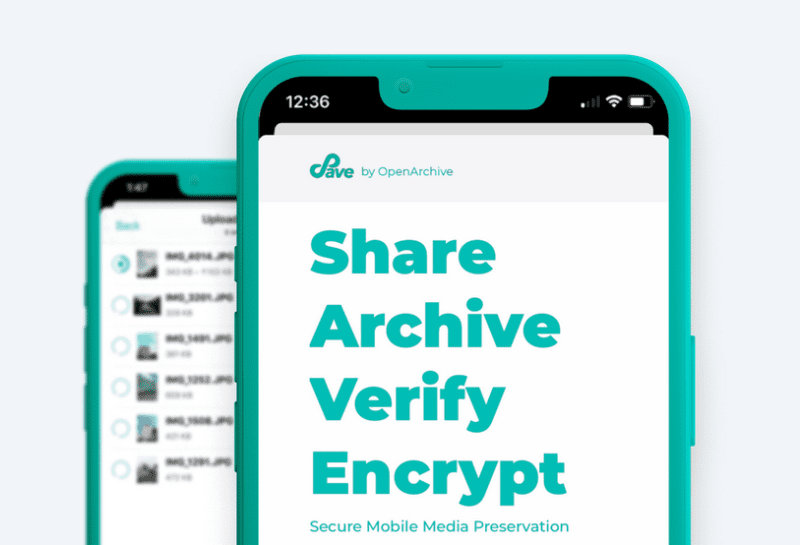As technology and human rights issues become ever more complex, activists, journalists, and defenders on the ground are finding strength in open-source tools. One such tool Save, is an app developed by Open Archive, an organization dedicated to protecting freedom of expression. Save equips human rights defenders with secure methods to archive, verify, and encrypt critical evidence gathered on their mobile phones.
In a recent interview, Alex Esenler, the Deputy Director at Open Archive, shed light on the organization’s mission, the challenges it faces, and the strategies it employs to ensure long-term sustainability. Here’s a closer look at the insights shared during the conversation.
About Open Archive
Founded in 2014, Open Archive was born out of a master’s degree project by Natalie Catranel, the organization’s executive director. Recognizing the need for secure and sometimes pseudonymous sharing of media captured on mobile phones, Catranel sought to create a user-friendly tool that would enable activists and citizen journalists to preserve critical evidence without fear of it being lost or censored on social media platforms.
The result was the ‘Save’ app, an archiving workflow tool designed to securely store and verify media captured on mobile devices. As Alex explained, “Being able to get people to think about the longevity of their media because it can form a people’s history…that was a really big drive for Natalie when she created Open Archive.”
Defining Sustainability for Open-Source Projects
For Open Archive, sustainability is a multifaceted concept that encompasses three distinct “buckets”: funding, the app itself, and the people behind the organization. Alex elaborated on each aspect, emphasizing the challenges that smaller organizations like Open Archive face in securing consistent funding, maintaining and updating the app, and ensuring the well-being of their team members.
One of the most significant hurdles Open Archive has confronted is the funding gaps that can lead to code becoming buggy, features becoming outdated, and ultimately, the loss of valuable team members due to the inability to compensate them fairly. “Those funding gaps do cause challenges,” Alex said, “Take our Save app, for example. The Android version’s code became riddled with bugs because we couldn’t afford maintenance. By the time we finally secured funding, it felt like starting over. We were stuck fixing the old code instead of innovating and moving forward”
The Importance of Community Engagement
Community engagement is a cornerstone of open-source software development, and Open Archive recognizes its vital role in ensuring the sustainability of its tool. While code contributions from volunteers are valuable, Alex emphasized the importance of user feedback, testing, and involving the community in feature development and prioritization.
“When it comes to open-source tools,” Alex explained, “community engagement is what first pops into mind. This can involve directly contributing code, as you mentioned, or having a large volunteer team of maintainers who keep the app running smoothly.” However, she emphasized that user feedback is equally important: “We want to make sure the tool’s development is truly community-driven.”
Strategies for Ensuring Long-Term Sustainability
To address the challenges of sustainability, Open Archive employs a multi-pronged approach that involves diversifying funding sources, prioritizing team well-being, and collaborating with organizations like Internews and their SUSTAIN project.
One of the organization’s primary goals is to secure consistent, multi-year funding from donors who can commit resources for three to five years. As Alex stated, “We want to make sure that we’re recognizing everyone as people who are living in a code-filled world with conflicts in every corner. This can be especially challenging for those working in human rights, where motivation can dwindle in the face of constant struggle.”
Collaboration with initiatives like SUSTAIN has proven invaluable in alleviating the burden of tasks like recruitment, enabling Open Archive to focus on its core mission while receiving guidance and support from outside perspectives.
The Road Ahead for Open Archive
Looking ahead, Open Archive’s roadmap for growth and sustainability includes ambitious plans for feature development, such as enhancing security features for high-risk situations and exploring decentralized storage solutions. However, the organization’s primary focus remains on securing consistent, long-term funding and fostering a supportive environment for their team.
Alex’s advice to other open-source developers and projects emphasizes the importance of community engagement, user feedback, and diversifying funding sources. “Try our tool, use our tool. Tell us if it doesn’t work for you or what’s missing. This feedback helps us innovate and create resources beyond just the Save app,” she urged, underscoring the value of input from the broader community.
As the world grapples with ongoing challenges to human rights and freedom of expression, the role of open-source tools like Open Archive becomes increasingly vital. By providing secure and accessible means for human rights defenders to document and preserve critical evidence, these tools empower individuals and organizations to hold those in power to account.
However, the sustainability of such projects is not without its obstacles. As Open Archive’s experience illustrates, consistent funding, community engagement, and prioritizing team well-being are essential components for ensuring the long-term viability of open-source tools aimed at protecting fundamental human rights.
Through collaborative efforts, diversified funding sources, and an unwavering commitment to their mission, organizations like Open Archive are paving the way for a future where freedom of expression is safeguarded, and the voices of those fighting for justice are amplified through the power of technology.
Quotes edited for clarity
